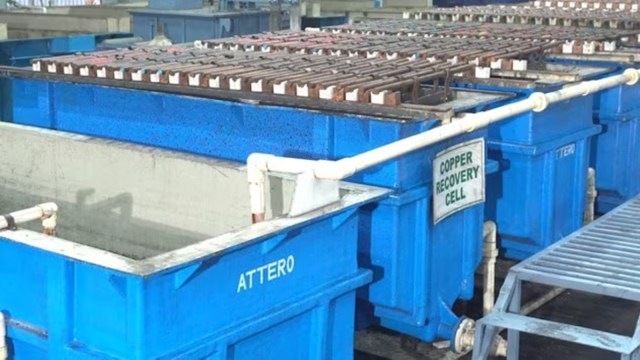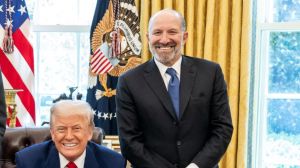Nitin Gupta, CEO of Noida-based Attero Recycling, sees immense potential for growth in the lithium-ion battery recycling space in the coming years, especially with the notification of the Centre’s Battery Waste Management Rules (BWMR), 2022, which makes Extended Producer Responsibility compliance mandatory for OEMs. In an interaction with Aggam Walia, Gupta highlighted the need for incentives for the recycling industry and dismissed South Korea’s concerns pertaining to BWMR, 2022 raised at WTO. Edited excerpts:
How do you see the Extended Producer Responsibility (EPR) compliance for lithium-ion battery waste incentivising battery recycling in India?

Lithium-ion batteries have an even higher residual value compared to lead-acid batteries, which makes their recycling commercially attractive. The challenge, however, is that extracting cobalt, lithium carbonate, nickel, and graphite from used lithium-ion batteries is not everybody’s cup of tea. Even if EPR rules were not there, the collection of lithium-ion batteries would have happened in itself because of the fact that it is a high value product. With EPR rules, it will get accelerated. If the supply chain was getting created in, let us say, a 7-year time frame, now it will get created in a 1.5-year time frame.
Story continues below this ad
At the World Trade Organisation, South Korea has objected to BWMR, 2022 on the grounds that ensuring the use of recycled materials in batteries sold in India will lead to Korean OEMs incurring “excessive costs”. What is your view on this?
I think South Korea is unnecessarily raising this issue. If you look at what is happening internationally, the European Union has already mandated that every single battery pack sold in Europe starting this year has to have 5 per cent recycled content, going up to 70 per cent by 2030. The reasons for that are fairly simple. First, the dominance of China over the entire battery metal supply chain. Today, 90 per cent of battery grade graphite, 90 per cent of battery grade lithium carbonate hydroxide, and 60 per cent or more of battery grade cobalt comes from China. Various countries around the world are taking notice of this and saying that it is not a good policy from a geopolitical perspective. Europe has said that it will ensure a certain amount of recycled content metals are reused primarily to drive its local economy and stop reliance on China.
In India, similarly, the minimum recycled content requirement is a step in that direction. Also, from the perspective of carbon footprint reduction, it’s extremely important that we use recycled metal as the carbon footprint of recycled metal is much lower than the carbon footprint of virgin metals. Why should we not use recycled metals here? South Korea is just raising the issue because of the dominance of its battery cell manufacturers and they think they can bully the Indian government. Given today’s Indian government, they can not be bullied.
Does the recycling industry need government subsidies and incentives to support growth?
Story continues below this ad
Given the geopolitical context of the day, I think incentivising the creation of a circular economy is definitely needed. The government has been pushing on EVs largely because of two factors– pollution in this country and the forex import bill, to which a major constituent is oil. Today, Saudi Arabia is a major supplier of oil. If we do not create a domestic battery industry, we’re essentially replacing Saudi Arabia with China, because the majority of crucial materials needed for battery manufacturing come from China. To incentivise faster development of capacity and given the fact that USA has pumped in a $500 billion subsidy bill for this industry, the Indian government necessarily needs to come out with subsidy packages.
Take a look at what the government has already done– they came out with the PLI scheme for setting up gigafactories for the manufacturing of battery cells. Once that scheme gets implemented, they will obviously in parallel need a PLI policy for recycling as well. The PLI policy for recycling should basically foster a circular economy and a domestic critical mineral supply chain.
What is the scope for investments in this industry?
Battery recycling has great macros going for it, largely because of EV demand and also the broader lithium-ion demand in ESS and consumer electronics. On top of this, 50 per cent of the cost of an EV is the cost of the battery and 45 per cent is the cost of raw materials that make up the battery. These raw materials are in short supply, which is something the recycling industry can fix. The supply of raw materials is also controlled by China and they have significant ESG issues. If you combine all of these factors,, there is a macro trend of high demand but not enough supply. Therefore, it is a very attractive industry for investment.
What is Attero’s waste collection mechanism?
Our collection network consists of both formal and informal methods. Batteries today largely come to us from all consumer electronic OEMs, which includes manufacturing waste from Samsung, Vivo, Oppo, Acer, HP, Flextronics, and others. Reliance Jio telecom tower batteries also come to us for recycling. Then, 90 per cent of automobile OEMs in the EV space are our clients, including Hyundai, Honda, Maruti Suzuki, and Toyota Motors. For instance, all the Hyundai Kona car recall batteries were recycled by us. From the informal sector, we have roughly around 50 aggregators around the country who aggregate waste and send it to us.
































